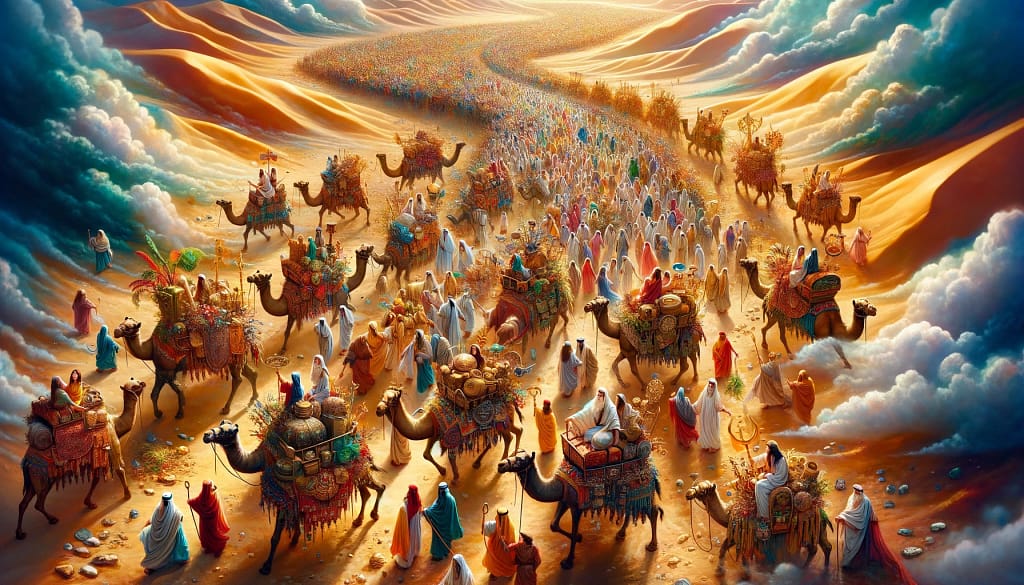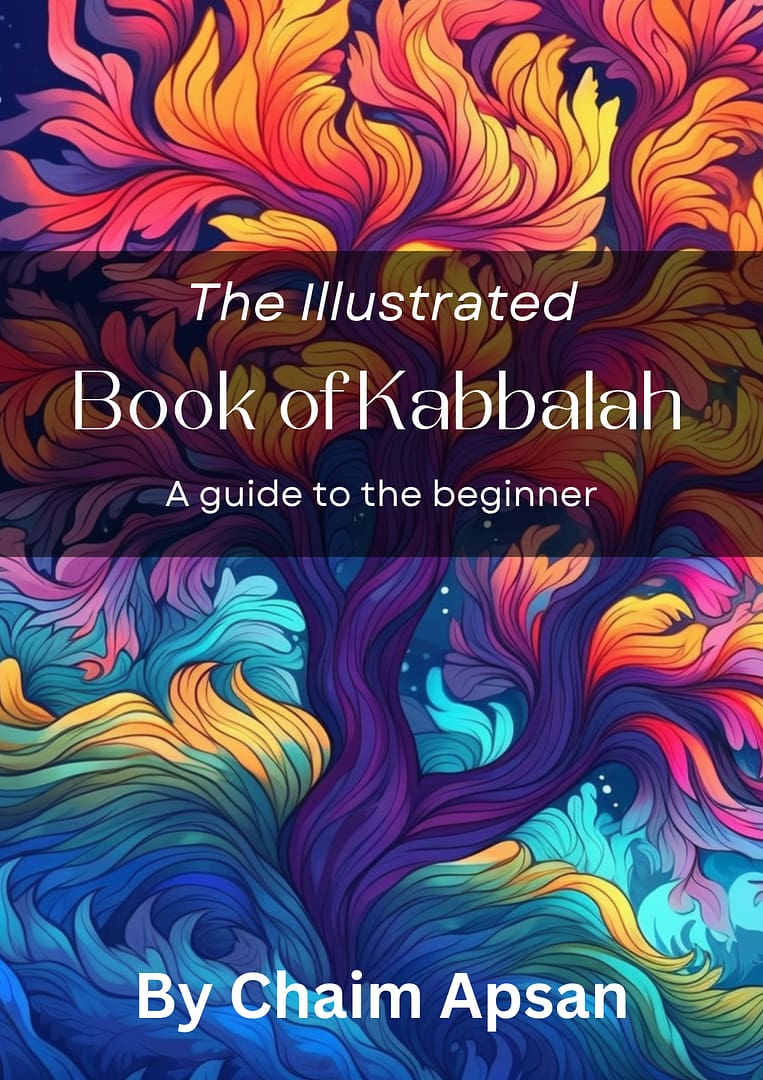Let’s explore in this article the concept of Kabbalah of money
Freely transcribed: Whether we like it or not, money is a crucial part of our lives. It is said that the holy Baal Shem Tov used to sleep without money with him at all. He’d distribute everything to charity from one day to the next. If he would need to fast or be served a king’s meal, that was entirely up to Hashem.
Clearly, not everyone is at that level of Emunah, so let’s explore some very fundamental Kabbalistic ideas about money.
The Kabbalah of Money
First of all, money is a spiritual force which is always flowing.
We know for a fact that money essentially enables us to exchange it for other things. Our possessions also reflect a certain degree of expansion of the soul. This is why Yaakov Avinu went across the river Yabok for a few small jugs in Sefer Bereshit.
At first sight, this seems very perplexing. Why would such a rich man like him, go alone across the river for such a small possession?

The answer is that every possession we own has a spark of the ancient spiritual worlds that broke, which must be elevated to its source in the service of God. So, Yaakov knew he couldn’t just leave those jugs there, because they were a gift of God to be used in his service.
Everything we have therefore, is a means of elevating specific sparks and sometimes even souls that were reincarnated in there. For example, the Ben Ish Chai (R’ Yosef Chaim of Baghdad) was imprisoned on false charges and it was later revealed to him that he had to study in that prison to elevate the fallen souls of Jews that were there.
Having said that, it’s important to realize that everything we have is 100% according to Hashem’s will. So, if you are a person who will use the money to a good cause to be able to elevate these sparks then chances are you will be able to receive more. But this is not always the case.
It could be that money doesn’t come from kosher sources, but rather from the Sitra Achra, such as when people get it by committing transgressions such as stealing or going to the casino. In this case, a person may even receive more money, but he won’t be able to use it to elevate the sparks or rectify souls. It will be held against him when he’s judged.
Therefore, money is not bad per se, it’s just that it comes with certain challenges that a person will have to deal with, if he gets enough of it.
Let’s elaborate on that.

Understanding Chassadim and Gevurot
We spoke about many times before: There are two main forces that Hashem uses to measure his light. One is Chassadim (lovingkindness) which is an expansive force of goodness that makes things pleasant, such as Tzedaka and compassion.
And another one is Gevurot (strength), which is the basis for all the dinim (judgment) and is a constricting force which makes things difficult. This is not good and evil, by the way. For example, happiness and singing is actually an aspect of the Gevurot because a person has to exert force to break the lethargy.
This might surprise some people watching this, but money is also rooted in the Gevurot. Now, Gevurot are not bad, they are an essential part of Creation. Rather, Gevurot, unfortunately, feed the evil forces (called the Sitra Achra).
Because of this, money is a very big challenge, not just because of the ayn Harah it attracts, but also because it can bring the worst out of people.
There’s a principle in Kabbalah from the Zohar that states that Ein HaDinim Nimtakim Ela B’shorsham. Translation: The dinim are not sweetened except at their source. Meaning, whatever problem, lack or difficult you have in life, if you really want to solve it, you have to fix it at its source. If it’s a problem in the Sephira of Chesed, then you fix Chesed, if it’s Gevurah, like money, then it’s there. If it’s Tiferet, then Tiferet, and so on.
Now, we know for a fact that all the sustenance for a person throughout the year is determined in Rosh Hashanah (the new year). If so, then there’s nothing to do, or is there? Since everything is predetermined, then why do we have to work? The answer is that, of course one must work, because through work we are building the Kelim (vessels) for Hashem’s blessings. Everyone knows someone who works a lot and barely makes ends meet, while another person works very little and still gets a lot of money.
Some Segulot on how to increase income
One of the ways to ensure a steady flow of Money is by giving Tzedaka which is charity. According to Jewish law, one has to give between 10% to 20%, depending on his means, and this money given effectively sanctifies the rest.
In doing so, a person can actually increase his income. It’s actually the single point in the entire Torah where the sages teach that one can test God. This means specifically giving 20%, that’s one of the most powerful segulot to become rich. However, one has to make sure that the recipient is worthy.
Another very powerful way to increase sustenance is by protecting our eyes to the fullest because sustenance comes primarily from it.
Some Tzadikim like the Noam Elimelech and the Baal Shem Tov teach that whenever we get angry, we lose a great deal of money that was due to us.
Rebbe Nachman teaches that whoever is constantly happy eventually succeeds and there’s a great secret to this. It is a kabbalistic principle that happiness unclogs many spiritual channels of the soul that got blocked and so when we are able to do everything out of genuine happiness, we make the blessings flow.
The holy Chida, (R’ Chaim Yosef David Azulai) writes that when you make G-d a partner in your business, you bring his blessing with it.
Honoring the wife is also one great Segulah to becoming rich as our sages teach in the Talmud. This is because when Hashem cursed Adam and Chava, she was meant to be subjugated to him and he was meant to work hard to eat.

There’s a law that is called “Middah Keneged Midda”, which some people call Karma or “what goes around comes around”. Meaning, everything you bring to the world comes back to you. This is a major Kabbalistic principle. And so, when a man honors his wife he’s essentially cancelling her curse. Hashem looks at the man and says “so you are cancelling her curse? I will cancel your curse as well!”
Of course, sometimes a person has nothing to do as we find from the story of the Avraham Ibn Ezra, one of the great Rishoim of the 11th century who was poor.
Rabbi Chaim Vital writes in Shaarei Kedusha that ultimately a person should have very little concern about work and money because, as Rebbe Nachman later teaches a few centuries after, working too much is a form of idolatry.
There’s finally one last element, which is the Mazal. Mazal is basically the sum total of spiritual factors surrounding a person. And Mazal is generally something difficult to change. Sometimes a person is not destined to have success unless he/she reaches a certain age. It could even be that marrying a certain person, even if that person is not rich himself, that the Mazal changes and a person finally begins to make good money.
This can also happens when a woman is pregnant and Hashem decides that the soul that is coming deserves to have a very comfortable life. In this case, the entire family gets blessed.
May we all have plenty of parnassah and that it should all be for a blessing.












